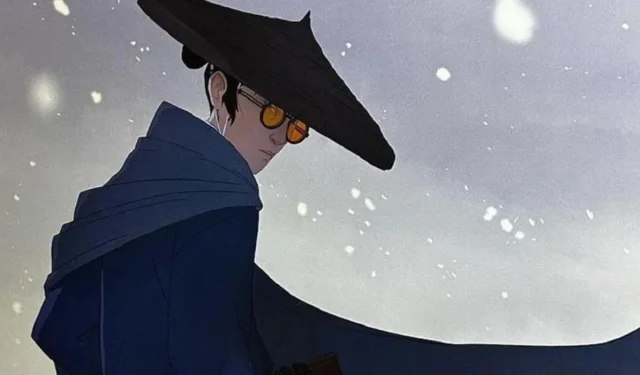
In the striking adult animated series Blue Eye Samurai on Netflix, the journey of rogue samurai Mizu (voiced by Maya Erskine) is driven by a powerful thirst for vengeance. This half-white, half-Japanese warrior embarks on a perilous quest not only to hunt down the four white men present during her birth but also faces a chilling side mission set forth by Madame Kaji (portrayed by Ming-Na Wen). Having endured a lifetime of being viewed as a monster due to her mixed heritage, Mizu’s sole intention is to eliminate those she holds responsible for her pain.
Mizu’s pursuit leads her to Madame Kaji, who runs a brothel linked to the fortress harboring Abijah Fowler (voiced by Kenneth Branagh). Kaji offers crucial information on Fowler’s whereabouts but requests Mizu to carry out a harrowing task first. Kinuyo, a mute girl rescued by Kaji from her abusive father, has become a victim of the town’s tyrannical overlord. Kaji knows that confronting the overlord would provoke violent retribution against her and those under her care. Therefore, in a heart-wrenching twist, she implores Mizu to end Kinuyo’s suffering through death.
Kinuyo’s Response to Mizu’s Gesture
Kinuyo Understands Mizu’s Intent and Clings to Life
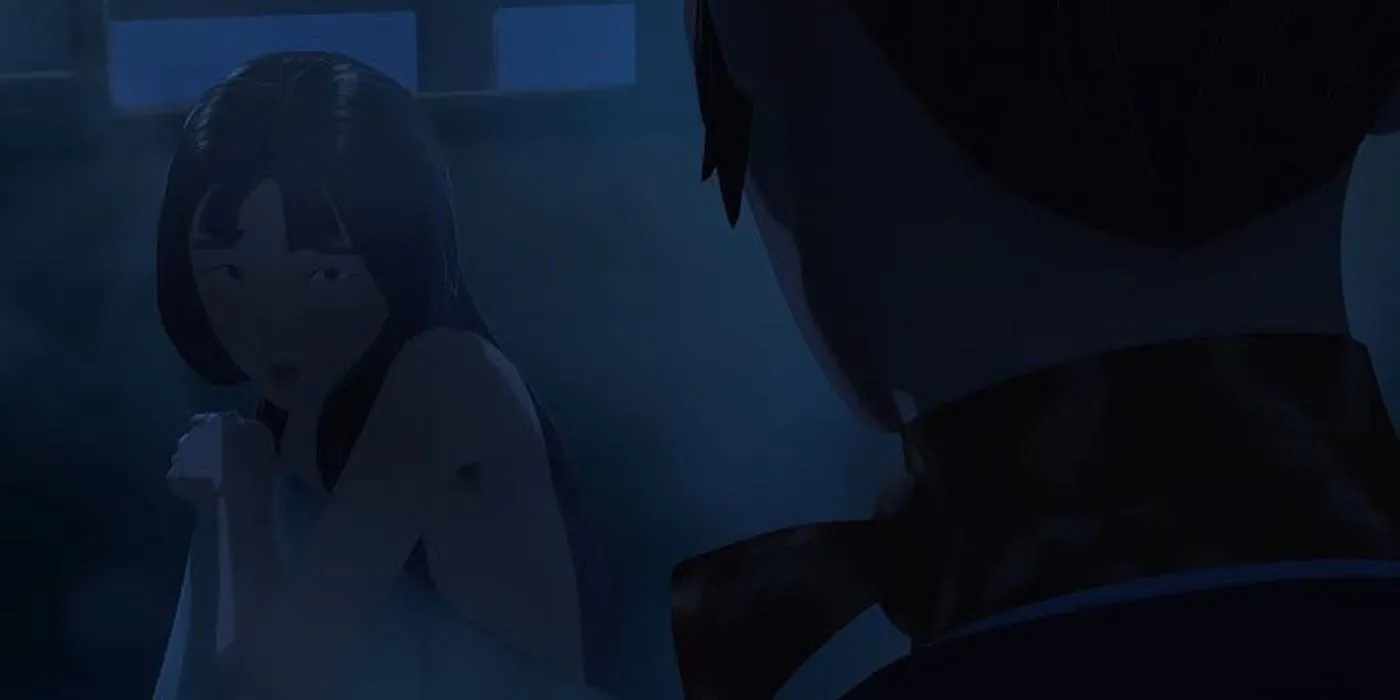
Under Kaji’s direction, Mizu is instructed to perform a significant gesture meant to communicate love and security to Kinuyo. Successfully infiltrating the overlord’s stronghold, Mizu finally approaches Kinuyo alone. However, when she presents the gesture, Kinuyo perplexingly shakes her head, leaving Mizu to reassess her strategy. Despite her dire circumstances, Kinuyo opts to take Mizu’s outstretched hand, showing a flicker of trust.
Surprisingly, Kinuyo still clings to hope and desires to live, even after enduring a history of abuse. Her actions—returning the gesture and shaking her head—indicate her awareness of its significance, suggesting she understands Kaji’s intent for mercy but ultimately rejects it. This resonates with Mizu, who has resisted surrendering to despair throughout her life, making the subsequent events all the more tragic.
Mizu’s Reluctance to Save Others in Blue Eye Samurai
Mizu: A Compellingly Realistic Character Defying Heroic Norms
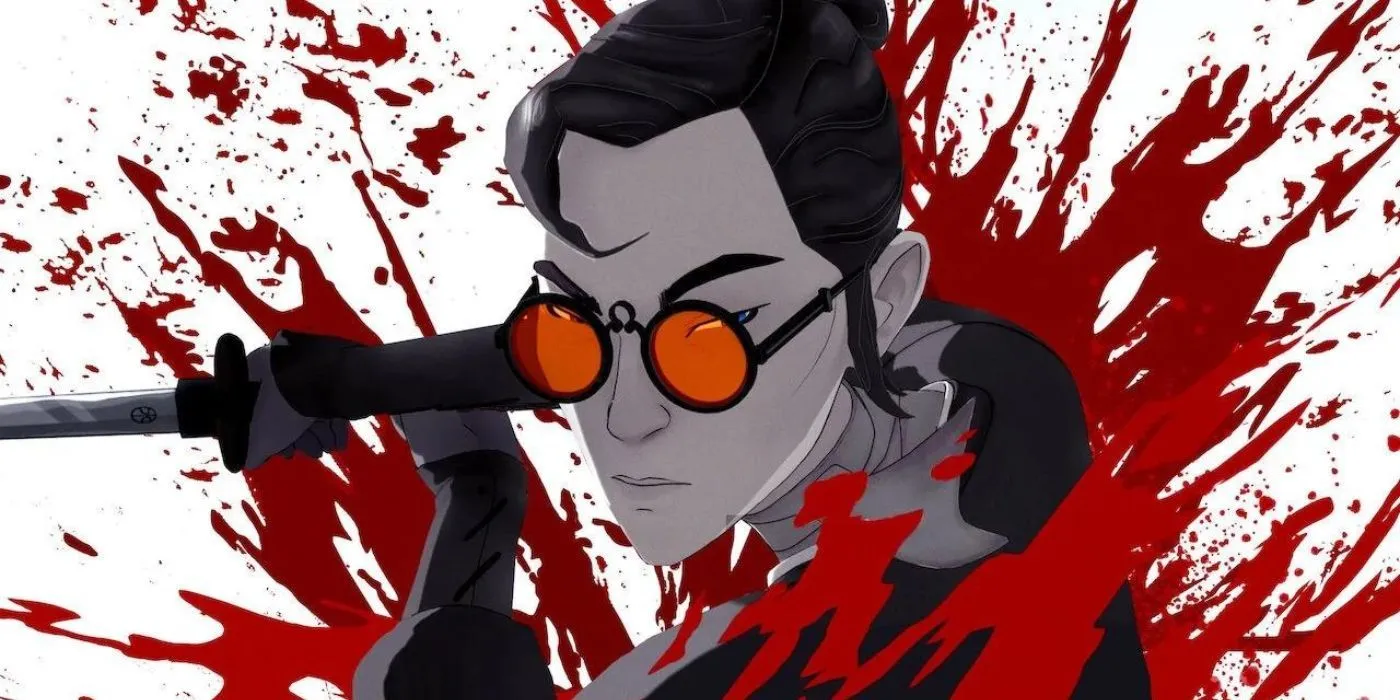
Blue Eye Samurai starkly illustrates that Mizu is not a conventional hero who rushes to save the innocent. Unlike a typical rogue protagonist, she recognizes that saving one individual won’t dismantle the oppressive societal structures afflicting many, culminating in her world-weary acceptance of a bitter reality. Mizu prioritizes her vendetta, with Kaji’s directives outweighing any impulses to save Kinuyo.
Even in her brief conversation with Kaji about Kinuyo, Mizu obscures the truth, claiming Kinuyo understood, while hiding the emotional gravity of the event. This side quest encapsulates the series’ overarching themes and foreshadows deeper tragedies awaiting in subsequent episodes.
Mizu’s Mission for Madame Kaji Highlights the Vicious Cycle of Revenge
Blue Eye Samurai: A Tragic Reflection on Historical Struggles
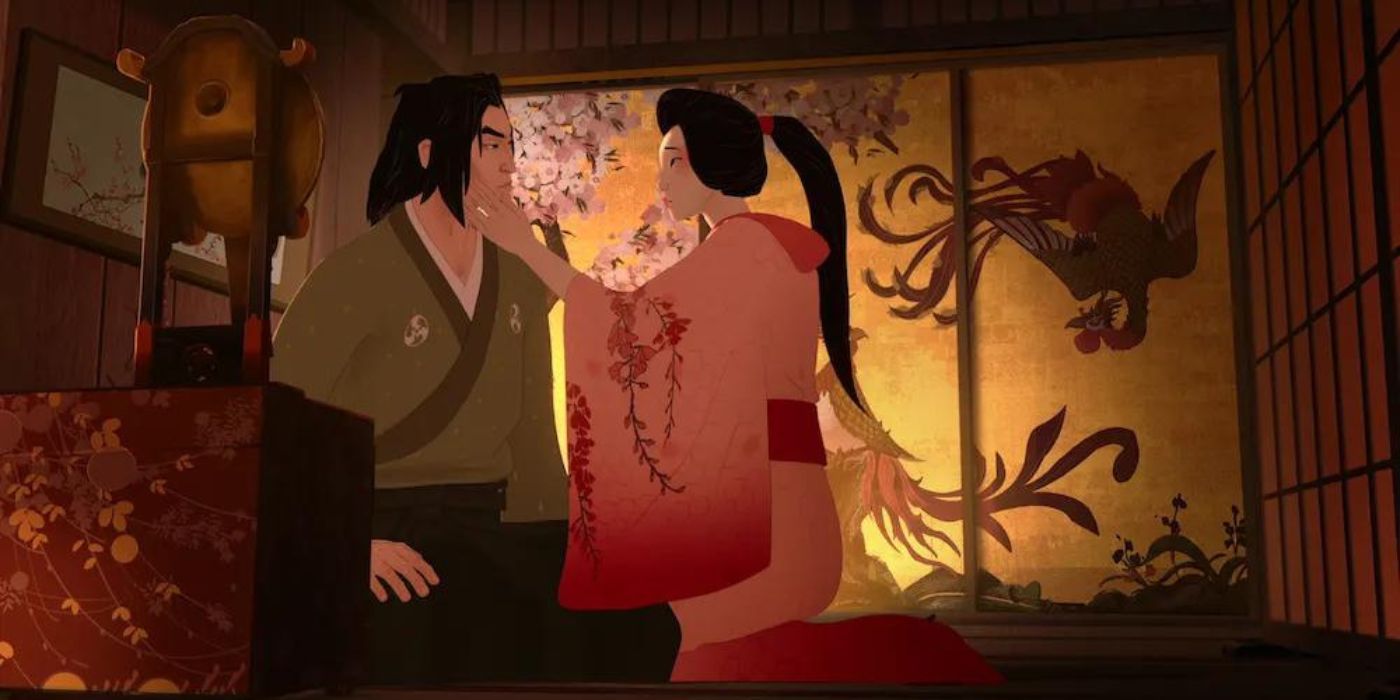
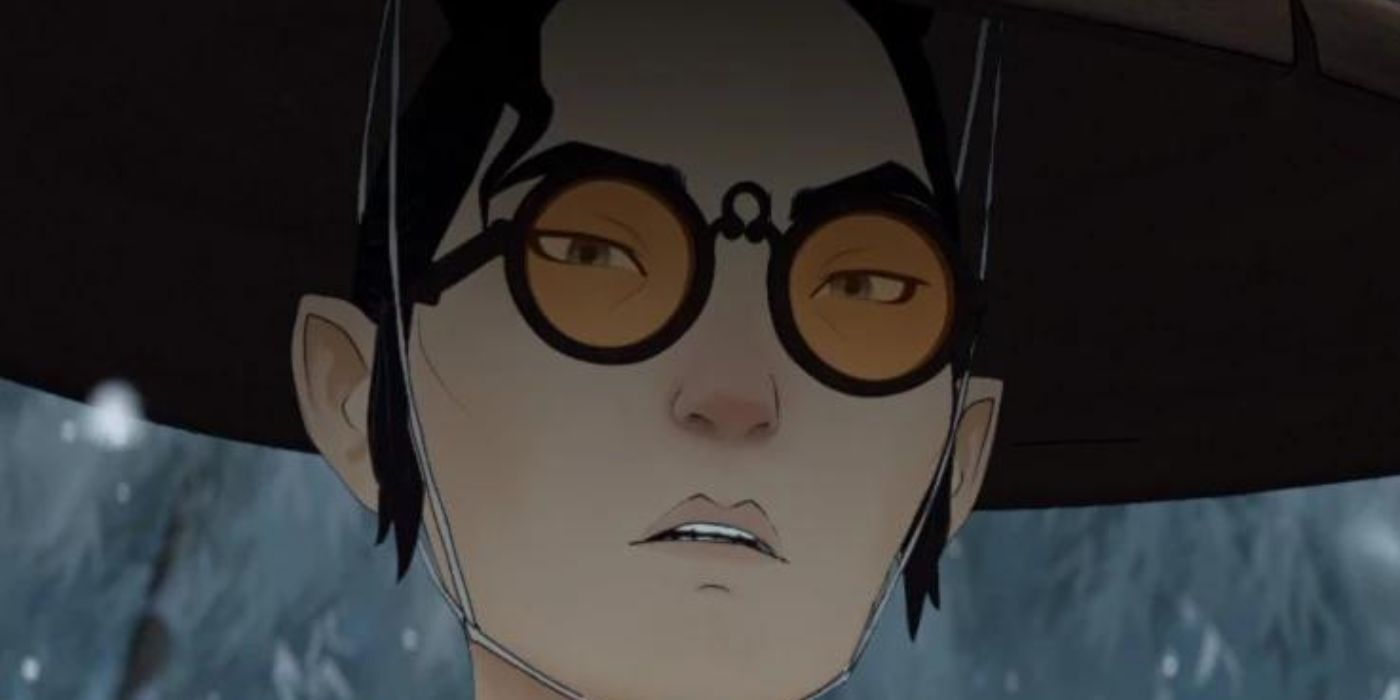

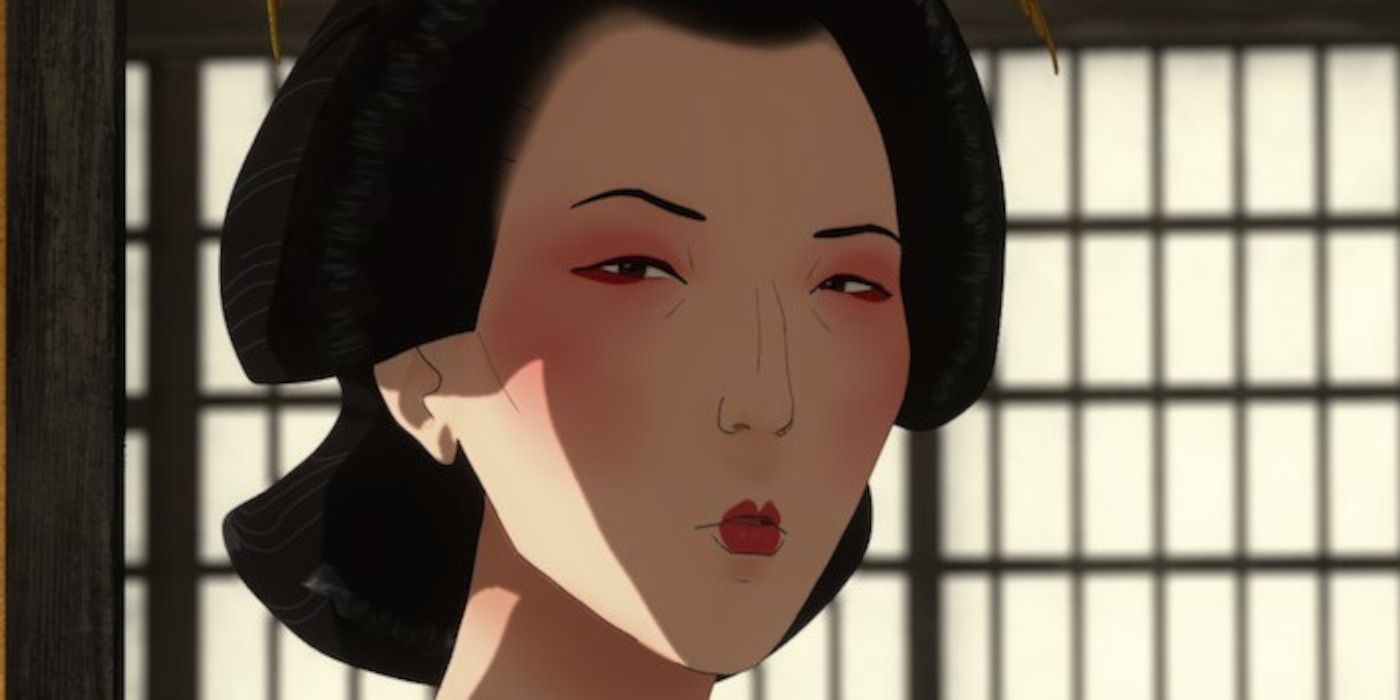

Set against the harrowing backdrop of Edo-period Japan, Blue Eye Samurai starkly reveals the inherent struggles faced by women. Mizu’s duality as a mixed-race individual leads her to present herself as male to navigate societal barriers. The series also portrays Akemi (voiced by Brenda Song), a noblewoman facing an unwanted marriage, who, despite her oppression, retains some agency. Conversely, Kinuyo embodies a potential duality of Mizu’s character, showcasing resilience against overwhelming odds.
The darkness deepens as Mizu kills a bird to avoid detection, leaving it in a nest of eggs. This chilling juxtaposition of taking a life to spare another encapsulates her violent journey—from ending an innocent bird’s life to contemplating the fate of a girl who longs to survive.
Blue Eye Samurai presents a multilayered narrative about Mizu trapped in a relentless cycle of violence, shaped by both her environment and her choices. The impending episode, “The Tale of the Ronin and the Bride,” is expected to deliver an emotional flashback revealing Mizu’s fleeting chance at love before tragedy disrupts her dreams of peace, further emphasizing the cycle of despair she perpetuates.
Leave a Reply ▼